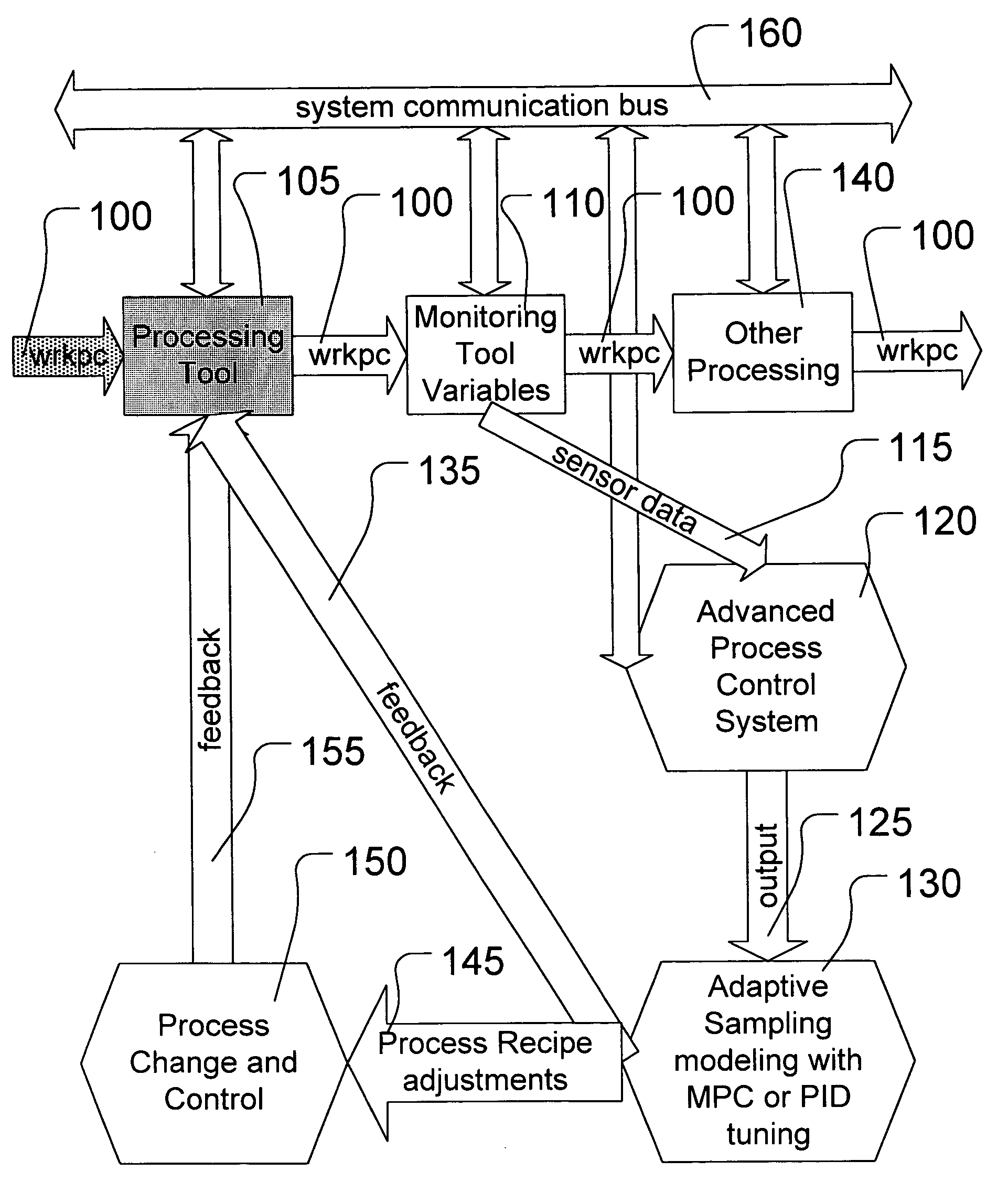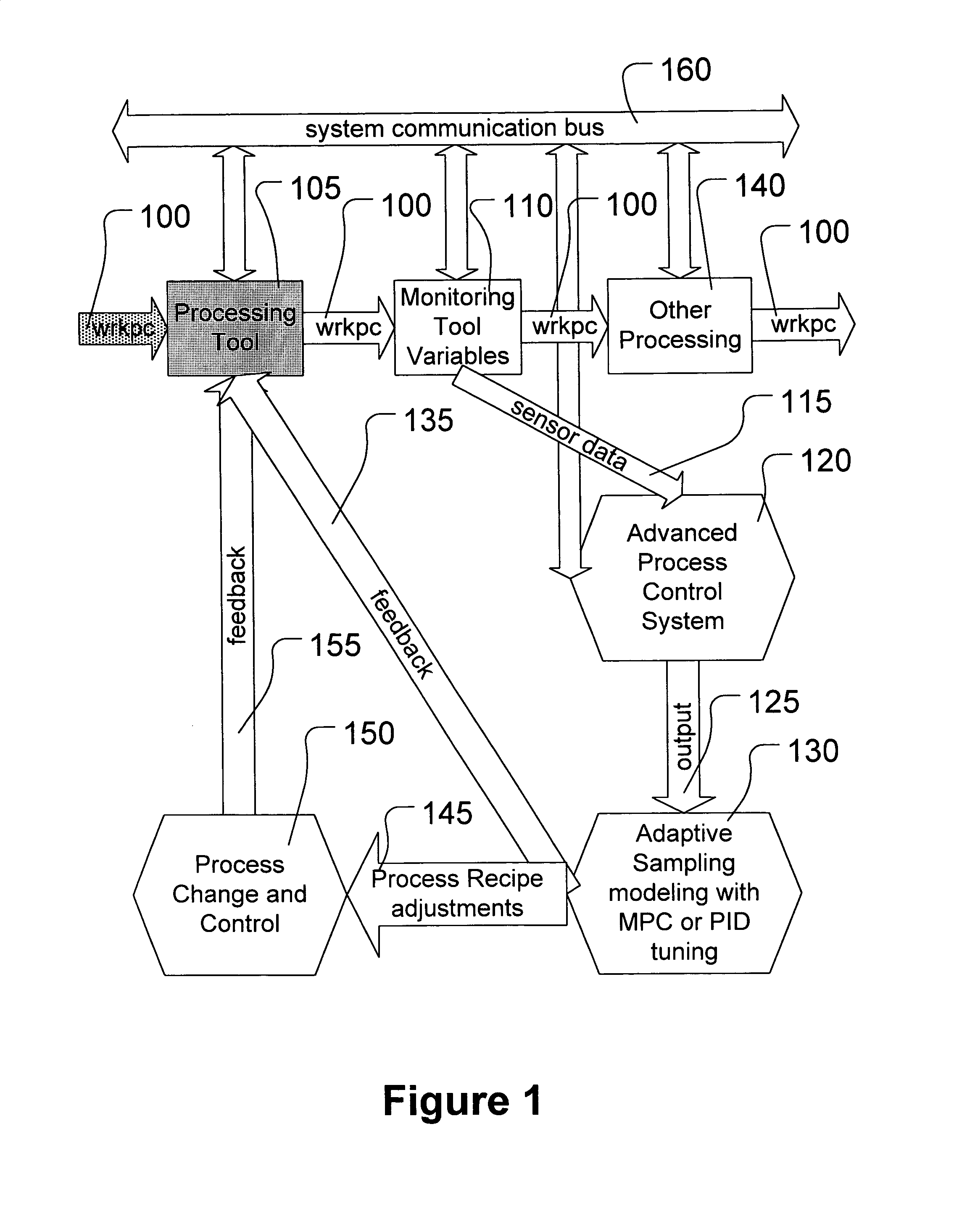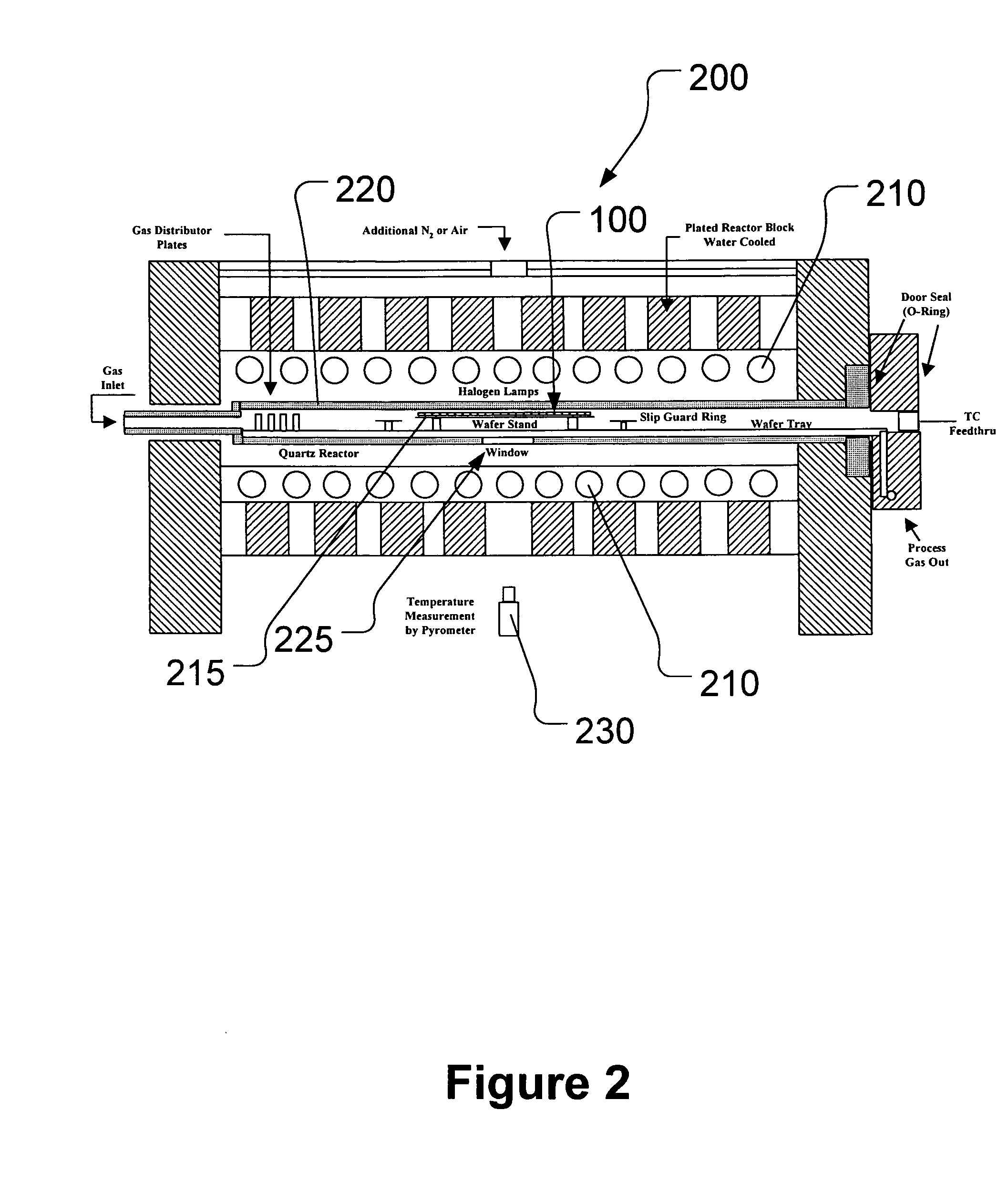Adaptive sampling method for improved control in semiconductor manufacturing
a sampling method and semiconductor technology, applied in semiconductor/solid-state device testing/measurement, electric controllers, instruments, etc., can solve problems such as engendering nonoptimal control of critical processing parameters, many of the processing tools currently commercially available suffer certain deficiencies, and many tools lack advanced process data monitoring capabilities
- Summary
- Abstract
- Description
- Claims
- Application Information
AI Technical Summary
Benefits of technology
Problems solved by technology
Method used
Image
Examples
Embodiment Construction
[0039]Illustrative embodiments of the invention are described below. In the interest of clarity, not all features of an actual implementation are described in this specification. It will of course be appreciated that in the development of any such actual embodiment, numerous implementation-specific decisions must be made to achieve the developers' specific goals, such as compliance with system-related and business-related constraints, which will vary from one implementation to another. Moreover, it will be appreciated that such a development effort might be complex and time-consuming, but would nevertheless be a routine undertaking for those of ordinary skill in the art having the benefit of this disclosure.
[0040]Illustrative embodiments of a method according to the present invention are shown in FIGS. 1–30. As shown in FIG. 1, a workpiece 100, such as a semiconducting substrate or wafer, having zero, one, or more process layers and / or semiconductor devices, such as a metal-oxide-se...
PUM
 Login to View More
Login to View More Abstract
Description
Claims
Application Information
 Login to View More
Login to View More - R&D
- Intellectual Property
- Life Sciences
- Materials
- Tech Scout
- Unparalleled Data Quality
- Higher Quality Content
- 60% Fewer Hallucinations
Browse by: Latest US Patents, China's latest patents, Technical Efficacy Thesaurus, Application Domain, Technology Topic, Popular Technical Reports.
© 2025 PatSnap. All rights reserved.Legal|Privacy policy|Modern Slavery Act Transparency Statement|Sitemap|About US| Contact US: help@patsnap.com



